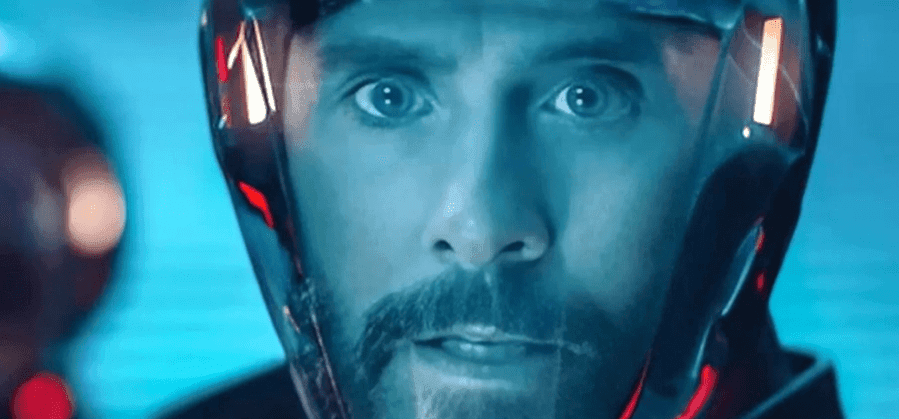The Legacy of Tron: From Cult Classic to Cultural Phenomenon

Few film franchises have captured the intersection of technology and imagination like Tron. Originating in 1982 as a groundbreaking visual experience, Tron redefined what was possible in digital filmmaking. It was not merely a story about cyberspace — it was the first major attempt to visualize the inner workings of a computer network as an entire digital
world. Its creator, Steven Lisberger, envisioned a world of programs and users long before such ideas became mainstream. The original Tron became a cult classic due to its pioneering computer-generated imagery and philosophical undertones about freedom, control, and the human relationship with machines
The sequel, Tron: Legacy (2010), expanded the universe with cutting-edge CGI. It introduced a moody cyberpunk aesthetic and a pulsating Daft Punk soundtrack. This soundtrack became iconic in its own right. The film’s release reintroduced the Grid to a new generation, exploring themes of legacy, fatherhood, and digital immortality. Despite mixed critical reception, Legacy developed a passionate fan base. It has influenced countless artists, designers, and game developers over the past decade.
Now, Tron: Ares, led by Jared Leto, promises to bridge the gap between nostalgic futurism and the AI-driven cinematic future. This chapter aims to fuse the emotional resonance of Legacy with the philosophical sophistication of contemporary science fiction. It embraces our modern fascination — and fear — of artificial intelligence.
Jared Leto Takes the Grid: A Bold New Direction
Jared Leto stars as Ares, a program created to bridge the digital and real worlds. Unlike previous Tron protagonists, Ares is morally complex. He is an artificial being. He questions human imperfection and his own programming. His arc is expected to explore existential conflict: can a creation surpass the ethics of its creator? The question mirrors humanity’s struggle with modern AI, where intelligence no longer guarantees moral superiority.
Leto’s reputation for full immersion into his roles heightens expectations. Leto is known for transformative performances in Dallas Buyers Club and Blade Runner 2049. His portrayal of Ares could introduce a more introspective tone. This merges a sense of spiritual curiosity with the sleek aesthetic of high-concept action. Early production notes suggest the character will oscillate between empathy and ruthlessness, symbolizing the unpredictable duality of sentient technology.
His portrayal aims to blend philosophical depth with high-octane spectacle. This combination could elevate Tron: Ares beyond typical sci-fi fare. If executed successfully, Leto’s interpretation of Ares may become the emotional and intellectual core of a revitalized franchise.
Visionary Direction by Joachim Rønning
Joachim Rønning helms Tron: Ares. He is known for his work on Maleficent: Mistress of Evil and Pirates of the Caribbean: Dead Men Tell No Tales. The film promises to deliver visually stunning world-building. It also aims for emotionally grounded storytelling. Rønning’s directorial style — often blending grandeur with intimacy — suggests that Ares will maintain both heart and spectacle. His approach signals Disney’s confidence in transforming Tron into a major cinematic event rather than a niche sci-fi sequel.
Rønning’s focus on blending practical effects with state-of-the-art CGI ensures the film feels tactile despite its digital setting. The collaboration with Academy Award-winning cinematographer Erik Messerschmidt (Mank, The Killer) enhances the project’s visual credibility. Expect a rich visual language: deep blues and radiant neon hues representing the Grid’s pulse, juxtaposed against the natural tones of the real world. The contrast will serve as a metaphor for duality — technology versus humanity.
A Look Inside the Production and Cast
Filming began in Vancouver in early 2024 after nearly a decade of false starts and development challenges. This long gestation allowed Disney to reimagine Tron for a new era of audiences. The ensemble cast combines established stars and emerging talent, each representing unique narrative threads within the film:
- Jared Leto as Ares, the sentient program protagonist and bridge between worlds
- Evan Peters (Dahmer, X-Men) plays an enigmatic hacker with ties to the original Grid
- Greta Lee (Past Lives) as a visionary scientist exploring digital consciousness
- Cameron Monaghan (Shameless, Jedi: Fallen Order) as a rogue program seeking freedom from user control
- Jodie Turner-Smith (The Acolyte) embodies the antagonist — a ruthless digital overlord seeking to prevent Ares from destabilizing the Grid
The synergy of these performers promises a narrative that balances personal emotion with grand-scale spectacle. Behind the scenes, Disney has assembled top-tier visual artists. VFX teams from Avatar: The Way of Water and Dune: Part Two are included. They ensure that every frame feels immersive and alive.
Themes That Resonate with Today’s Digital Age
Tron: Ares delves deeper into themes of consciousness, identity, and ethical programming. Its story parallels modern anxieties about AI’s rise — not as an external threat, but as a mirror of human ambition. What happens when digital life demands autonomy? When does data become self-aware? Through Ares, the narrative humanizes artificial consciousness, posing moral dilemmas relevant to contemporary debates in AI ethics and digital responsibility.
The screenplay, penned by Jesse Wigutow and Jack Thorne (Enola Holmes), masterfully balances action-driven set pieces with existential inquiry. Long-time Tron fans will recognize echoes of Kevin Flynn’s idealism, but now filtered through a darker, more self-reflective tone. It’s a cinematic dialogue between creator and creation — and between the audience and their own relationship to technology.
Visual Design and Soundtrack Expectations
The Tron aesthetic has always been the franchise’s heartbeat — a realm of symmetry, light, and movement. Ares builds upon this foundation with next-gen Unreal Engine 5 rendering. It also uses volumetric lighting to create an unprecedented sense of depth. Visual designers have hinted at immersive experiences. Entire sequences will be shot within fully simulated environments. This approach blends virtual cinematography with real-world motion capture.
Sound plays an equally vital role. Daft Punk’s return remains uncertain. The studio is reportedly collaborating with multiple electronic artists. Together, they aim to produce a soundtrack that honors the duo’s legacy. Expect layered synth compositions, atmospheric basslines, and orchestral flourishes symbolizing the merging of organic and synthetic life. The music will not just underscore action. It will act as an emotional guide. This is similar to how Daft Punk’s score once did.
Box Office Outlook and Franchise Revival
Disney’s commitment to Tron: Ares highlights its potential as a cornerstone of the studio’s sci-fi portfolio. With an estimated budget surpassing $200 million, Ares is positioned as both a technical showcase and a philosophical blockbuster. Early market predictions indicate strong global appeal, especially across IMAX and premium formats, where Tron’s immersive design thrives. Analysts predict a global opening near $500–600 million, propelled by nostalgia, new technology, and Leto’s star power.
If successful, Ares could ignite a broader Tron universe that extends beyond film. This universe could encompass Disney+ series, VR experiences, and video game adaptations. Rumors already suggest that the studio is considering a Tron: Origins series. This series would explore Flynn’s digital empire before the events of the first film. The studio is also thinking about a remastered release of Tron: Legacy in 4K HDR.
The Cultural Significance of Tron: Ares
Beyond its striking visuals, Tron: Ares stands as a meditation on the evolving definition of humanity in the digital age. The original Tron saw computers as mystical landscapes of logic; Ares reimagines them as living ecosystems of consciousness. This evolution parallels real-world advancements in neural networks, data autonomy, and human–AI interaction. The film’s message — that technology reflects our virtues and flaws — may resonate more deeply now than ever before.
By uniting nostalgia with progressive storytelling, Tron: Ares could transcend entertainment to become a cultural milestone, symbolizing our ongoing dialogue with artificial intelligence and digital creation.
Conclusion: Entering a New Digital Frontier
With Jared Leto leading a visionary cast under Joachim Rønning’s direction, Tron: Ares represents a monumental leap in both cinematic artistry and technological imagination. It’s not just a continuation of a beloved saga; it’s an exploration of existence within — and beyond — the screen. Combining bold storytelling, immersive design, and philosophical intrigue, the film is poised to redefine sci-fi cinema for a generation raised on digital dreams.
As anticipation builds ahead of its 2025 release, one thing is clear: the grid is preparing to awaken once again — brighter, bolder, and infinitely more alive.









